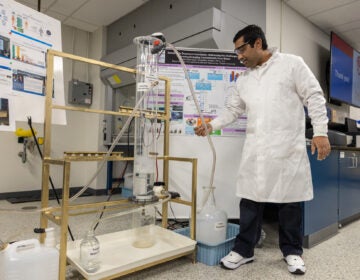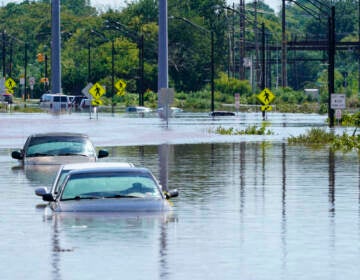The Search for Modern Masculinity
What does masculinity mean these days? We explore how the old script for what it means to be a man has been torn up — but not replaced.
Listen 55:02
Competent. Capable. Strong. Stoic. Provider. Protector. Leader. Patriarch. These are the kinds of words that we’ve long associated with masculinity and manhood — but in recent decades, ideas of what it means to be a man have undergone drastic changes.
As women have gained ground in education and careers, politics and culture, the role of men has shifted. They’re no longer automatically assumed to be the main breadwinners, the decision-makers or leaders. And a lot of the “masculine” attributes that were once considered virtues — decisiveness, stoicism, paternalism — are now sometimes seen as problematic. In other words, the old script for what it means to be a man has been torn up. But some experts say that script has not really been replaced, leading many men and boys to feel destabilized and lost.
On this episode, we explore how our ideas of masculinity are changing — why there seems to be a void of positive messages, the lure of the manosphere, and how men are reinventing and re-envisioning their roles. Also — a look at how being more deeply involved in caring for babies and children is affecting men’s brains.
ALSO HEARD:
- We talk with Richard Reeves, president of the American Institute for Boys and Men, about the range of challenges facing “the modern male,” how “toxic masculinity” went from an obscure academic term to a pop culture insult, why so many boys are struggling in the classroom, and more. His book is “Of Boys and Men: Why the Modern Male is Struggling, Why it Matters, and What to do About It.”
- Masculinity can feel like a firm set of rules that boys have to learn. But for the past few years, a group of men in Philadelphia have been meeting to rethink those rules, come up with ones they think are healthier, and become better role models. Alan Yu reports on the Masculinity Action Project.
- Evolutionary anthropologist and primatologist Sarah Blaffer Hrdy made her name with landmark research on how evolution has shaped female behavior. But recently, her interests have shifted in an unexpected direction — fatherhood. We talk with Hrdy about how she’s seen fathers’ roles change since her childhood in 1950s Texas, and what scientists have observed about the biological changes in men who are taking an active role as parents. Her book is “Father Time: A Natural History of Men and Babies.”
WHYY is your source for fact-based, in-depth journalism and information. As a nonprofit organization, we rely on financial support from readers like you. Please give today.






